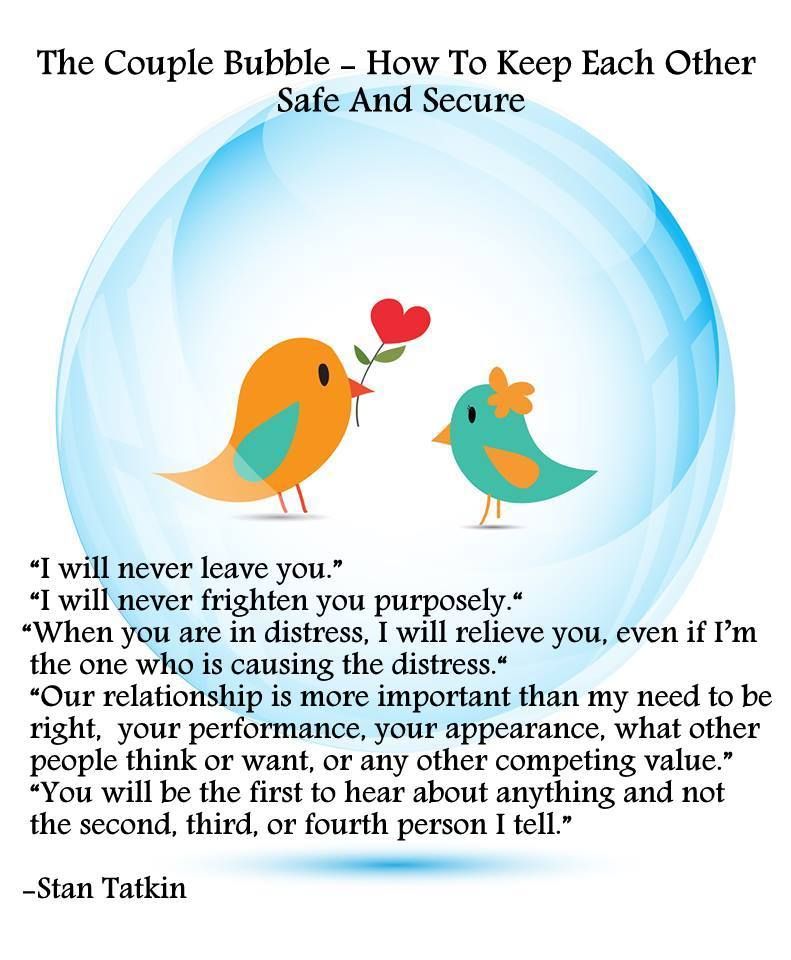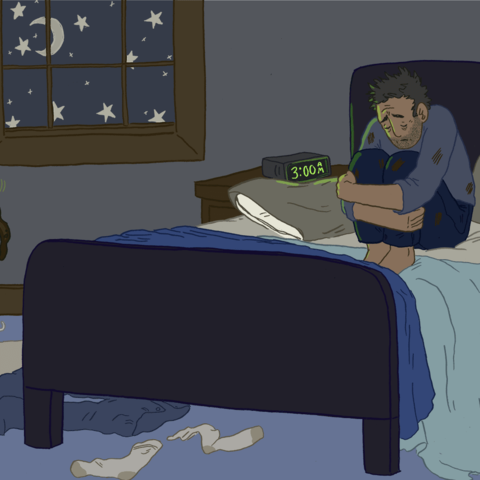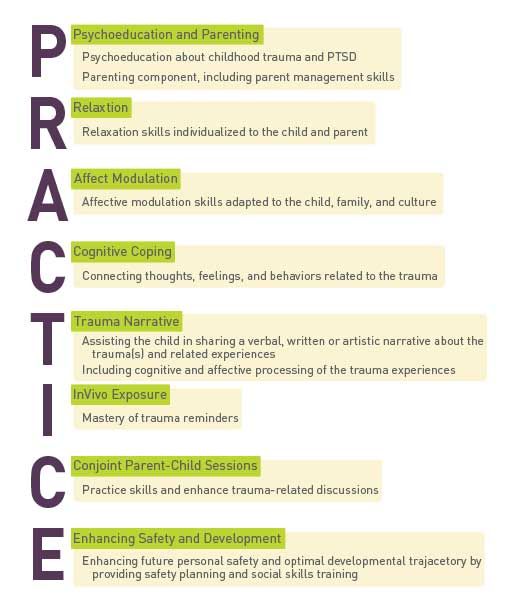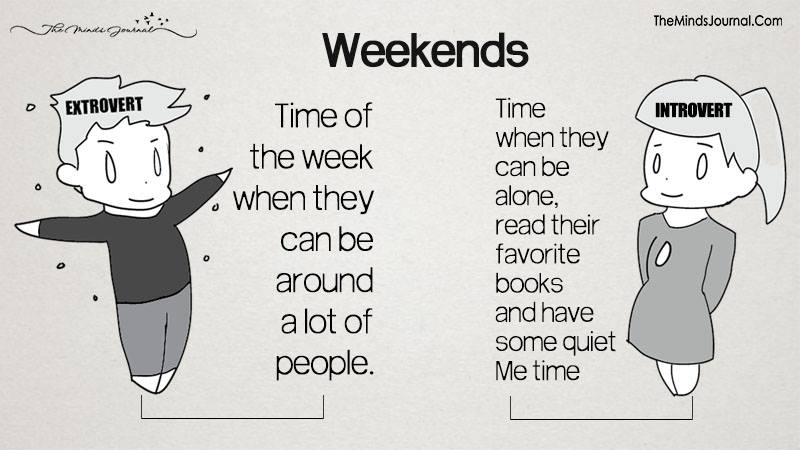How to end therapy sessions
How to 'Break Up' with Your Therapist
The relationship you have with your therapist may be one of the most important in your life. So how do you end things when it’s time?
Going into therapy is an incredible act of self-care — and often an essential step toward wellness.
Whether you began counseling to learn tools for dealing with anxiety or to get clarity on a rocky relationship, chances are you set out to find a therapist who made you feel seen, cared for, and understood.
If so, your intuition was spot-on. Recent research shows that the relationship you have with your therapist (also known as the therapeutic alliance) is one of the biggest indicators of effective treatment.
Still, at some point you may feel like it’s time to end this therapeutic alliance for one reason or another.
The question then becomes, “How do I ‘break up’ with my therapist?”
You might be tempted to stop showing up for appointments, but how you end all relationships is just as vital as how you start them. In fact, how you stop counseling can be a helpful practice for what takes place outside of your therapist’s office.
Collaboration, responsiveness, sensitivity to a client’s sexual orientation and spiritual beliefs — all are key to a successful client-therapist relationship.
Maybe you indeed found a beneficial relationship with a therapist, but you now feel ready to tackle life’s complexities without their assistance. Or perhaps you feel your therapist doesn’t get your cultural or gender identity, and you want to switch to a different one.
“This is intensely personal work and you won’t fit with every therapist out there. Trust your gut,” says Susan Mecca, PhD, a psychologist, organizational consultant, and the author of “The Gift of Crisis: Finding Your Best Self in the Worst of Times.”
Whatever the reason may be, the decision to end therapy or switch therapists is entirely in your hands.
1. Figure out the ‘why’ behind it
Your reason for ending therapy could run the gamut from thinking “my therapist is frustrated with me” to feeling abandoned by therapists — either with the one you have or historically.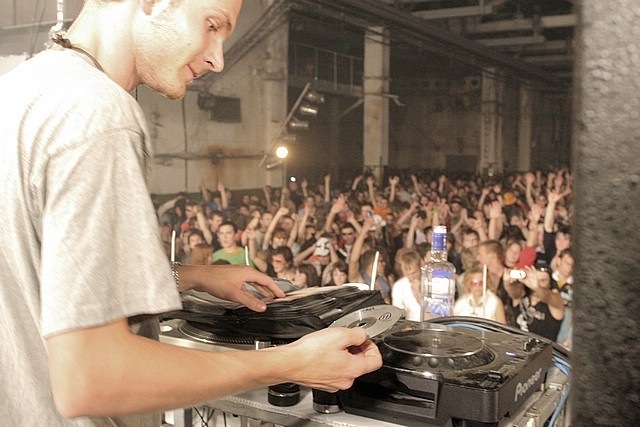
Maybe therapy is no longer useful. Or perhaps it seems that something is just… off.
Joanne King, LMHC, and author of “Too Good To Go, Too Bad To Stay: 5 Steps To Finding Freedom From a Toxic Relationship,” suggests asking yourself:
- Do I feel that my therapist is empathetic? Present? Competent?
- Do I feel judged?
- Did I clearly state my goals? If so, am I moving toward them?
Getting clear around your choice will help you determine what you want in a therapist, either now or in the future. It’ll also help you prepare to discuss your decision with your therapist.
2. Talk with your therapist
Ideally, you would navigate the feelings that arise when ending therapy with your therapist. But this may sound strange to some, if not impossible. And yet, if you have a good relationship with your therapist, this may be exactly the strategy you should take.
“Ending therapy should be as intentional as starting therapy,” says Charna Cassell, MFT, a psychotherapist and the founder of the Center for Passionate Living. “It’s an opportunity to evaluate any established patterns around endings, such as how you’ve left jobs and relationships in the past. A good therapist can also help you process your decision.”
“It’s an opportunity to evaluate any established patterns around endings, such as how you’ve left jobs and relationships in the past. A good therapist can also help you process your decision.”
That said, if there’s been an ethical violation by your therapist, you may want to terminate the relationship immediately and report the misconduct to the licensing board or another therapist. These include:
- a sexual advance
- a violation of your boundaries
- a breach of confidence
3. Or send an email or text
Perhaps you’ve had two sessions with a new therapist and the connection isn’t there. It could be that their style of interaction or approach doesn’t resonate with you.
If this is the case, “You don’t owe your therapist a long or involved explanation, just the courtesy of a goodbye,” Mecca says. She suggests:
- canceling your next appointment with appropriate notice, or
- sending a message that says, “I’ve decided I’d like to try a different approach with another therapist but appreciate your time and thoughts”
King also recommends this tactic for those who aren’t comfortable with confrontation. “A good therapist would be happy to read and respond to your email or text. The end of a therapeutic relationship is about the client — not the therapist,” she says.
“A good therapist would be happy to read and respond to your email or text. The end of a therapeutic relationship is about the client — not the therapist,” she says.
4. Be honest
“Therapy is about personal growth,” Mecca says. “If you feel that your therapist doesn’t understand the issue or isn’t helping you gain new insights into a problem, tell them.”
King agrees. “It’s important to be able to share why you are leaving,” she says. “Part of the work in therapy is learning how to show up in life and to feel empowered to say ‘this isn’t working for me’ or ‘we’re not meeting my goals.’”
5. Consider the ‘conscious goodbye’
“We live in a ‘see you later’ culture that’s afraid of goodbyes and avoids them at all costs,” Cassell says. A conscious goodbye, however, can help you see what you may have accomplished throughout therapy. This can be validating and energizing.
“I encourage ‘conscious goodbyes’ where clients take time to assess where they were when they started and where they are now,” Cassell says.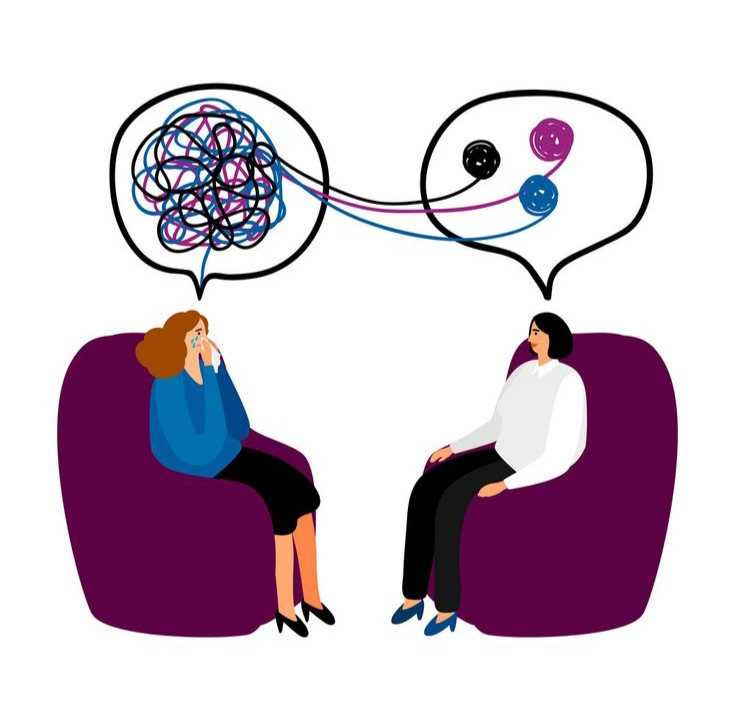 “If they’re leaving because we’re not a good fit, we examine the growth they want to find with a new therapist.”
“If they’re leaving because we’re not a good fit, we examine the growth they want to find with a new therapist.”
Cassell says she also practices saying the word “goodbye” with some clients. “This is profoundly helpful for people who have trouble with endings, or who have held on to relationships past their expiration date.”
6. Have a plan
Several mental health conditions may require ongoing care. For example, if you’re in therapy for depression and it’s continuing to affect your day-to-day functioning, you might want to line up a new therapist before ending your current relationship.
Similarly, if you choose to end your therapeutic relationship, it’s important to continue taking your medications. This will help you avoid withdrawal or the worsening of symptoms.
7. Discuss ending therapy at the get-go
King spends her first two sessions with clients identifying and rating their goals on a scale of 1 to 10 in a method she calls “brain spotting.” Once they’ve reached zero, their work together is considered finished.
While not every approach may be as clear cut, you might consider discussing how you and your therapist will end your relationship when you start. This, too, can be a valuable practice for how you choose to manage, and conclude, other relationships.
It’s common to worry about how a therapist will react to a client’s decision to end the relationship. But “a good therapist always has their clients’ best interests in mind, first and foremost,” says King. “This is dictated in our code of ethics.”
If your therapist gives you a hard time or forces you to stay, consider it a “huge red flag,” King says. She also suggests that you should, again, be honest — and provide feedback.
“It helps us become better therapists,” King says. “Plus, when you communicate what did and didn’t work for you, you’re helping others.”
“I normalize endings,” says Cassell. She also notes that she recognizes that she may “walk with a person for only part of their journey before they need something else. ” In other words, she doesn’t take it personally.
” In other words, she doesn’t take it personally.
“I love goodbyes and try to teach clients not to fear them,” Cassell says. “I also acknowledge the courage it takes to initiate them.”
What all agree on is that you should never ghost your therapist. “We’re human beings too,” King says. “We worry and care about people — that’s our job.”
There are multiple reasons to go into therapy — and there are just as many reasons to end it.
If you feel it’s time to “break up” with your therapist, you can do so in a diplomatic way. Consider outlining your reasons so that you have a handle on your motivation. Open up a dialogue with your therapist. Be kind and honest.
Additionally, if you’re ready to switch therapists, know there are resources available. If you’re looking for a more culturally sensitive therapist, for example, you can check out:
- Ayana
- African American Therapists Directory
- Inclusive Therapists
- Therapy for Latinx
- National Queer and Trans Therapists of Color Network
- Therapy for Black Girls
- Black Female Therapists
Your current therapist can also offer referrals.
Above all, keep in mind that “you drive the therapy process,” says Mecca. “Listen to your heart — or your gut — about what feels right to you.” That, after all, is a mark of therapy in action.
Breaking Up With Your Therapist? Here's Exactly How to Do It
Health
Related Condition Centers
- Mental Health
No, you shouldn’t ghost them.
By Kimberly Truong
John Gall
It’s a little twisted how breaking up with your therapist is one of those things it would be really nice to process with...a therapist. Most of us don’t like to hurt other people’s feelings, and having to break up with a therapist might make you worry you’re doing just that. Think of it this way: Breaking up with your therapist releases both of you from a situation that may no longer be productive, Tamar Chansky, Ph. D., psychologist and author of Freeing Yourself From Anxiety, tells SELF.
D., psychologist and author of Freeing Yourself From Anxiety, tells SELF.
“As much as therapists are absolutely human beings and can have their feelings hurt, [you can] shift the frame of what this is about,” Dr. Chansky says. “It’s not about hurting that person, it’s about what you need.”
Below, you’ll find some indicators that you should consider breaking up with your therapist, plus some tips to make it as painless as possible for everyone involved.
Here are a few signs that it might be time to break up with your therapist.
1. Your sessions aren’t making you feel better overall.
Ideally, you would always walk away from therapy feeling like your therapist has lifted some of your burden, not added to it. In reality, it’s normal to sometimes leave therapy feeling upset due to the emotions the process can stir up. That’s different from feeling distressed every time (or nearly every time) you leave because your therapist isn’t listening to you, isn’t sensitive enough to your needs, or isn’t helping you practice using some tools to deal with this exact kind of emotional discomfort.
“If you’re routinely leaving a session feeling worse than when you arrived, that’s a red flag,” Dr. Chansky says.
2. You don’t feel as though you’re growing.
After entering therapy, you’ll hopefully see some kind of change in yourself over time, Marni Amsellem, Ph.D., a clinical psychologist at Smart Health Psychology, tells SELF. It’s not an instantaneous thing; it depends on the kinds of issues you’re trying to work through, the form of therapy in which you’re engaging, how dedicated you are, how proficient your therapist is, how often you see them, and more.
There’s no hard and fast rule for how long it takes for therapy to feel like it’s working, but Dr. Amsellem says that generally “you should see some growth or change from therapy rather quickly.” It might even be the encouragement of knowing you’re working on yourself with a professional you click with emotionally. If you don’t feel like your therapist is motivated or capable enough to help you progress, it might be time to move on.
Rachel B., 28, had been seeing her therapist for a year and was craving actionable advice that she wasn’t receiving. It was one of the reasons she eventually dumped her therapist. “She would let me talk through things on my own without reacting much,” Rachel says. “In comparison to other therapists [I’ve had], it didn't really feel like the best approach for me.”
3. You don’t trust your therapist.
One of the main points of therapy is to open up. If you find yourself holding back from telling your therapist about your thoughts or behaviors, it can impede your mental and emotional growth and create an ill-fitting dynamic, Dr. Chansky says.
Keep in mind that part of your therapist’s job is to hold you accountable, which might be uncomfortable at times. It can feel really bizarre to essentially pay someone to call you out on your shit when necessary. You may be a little reluctant to get totally honest about aspects of your life that feel hard or shameful. That’s why it’s on your therapist to create a safe, nonjudgmental space where you feel you can bring up these topics anyway. If you can’t, how are you going to work through them?
If you can’t, how are you going to work through them?
4. It’s almost impossible to see your therapist regularly.
Therapy problems can be logistical too. “Maybe you’re having trouble scheduling with this person—they’ve switched to no evening hours, but that’s all you have available,” Dr. Amsellem says. “If you’re unable to keep appointments, it might be time to look elsewhere.”
5. Your therapist isn’t sensitive to the differences in identity between the two of you.
You might be seeing a therapist whose identity differs from yours in nearly every possible way without it being much of an issue. But if you’re in therapy to discuss aspects of your identity that your therapist doesn’t share, such as your race, gender, or religion, your therapist needs to bring an extra level of awareness and sensitivity to your sessions.
“If you feel like they’re not really valuing the knowledge that you have about your culture and your background, bring it up,” says Dr. Chansky.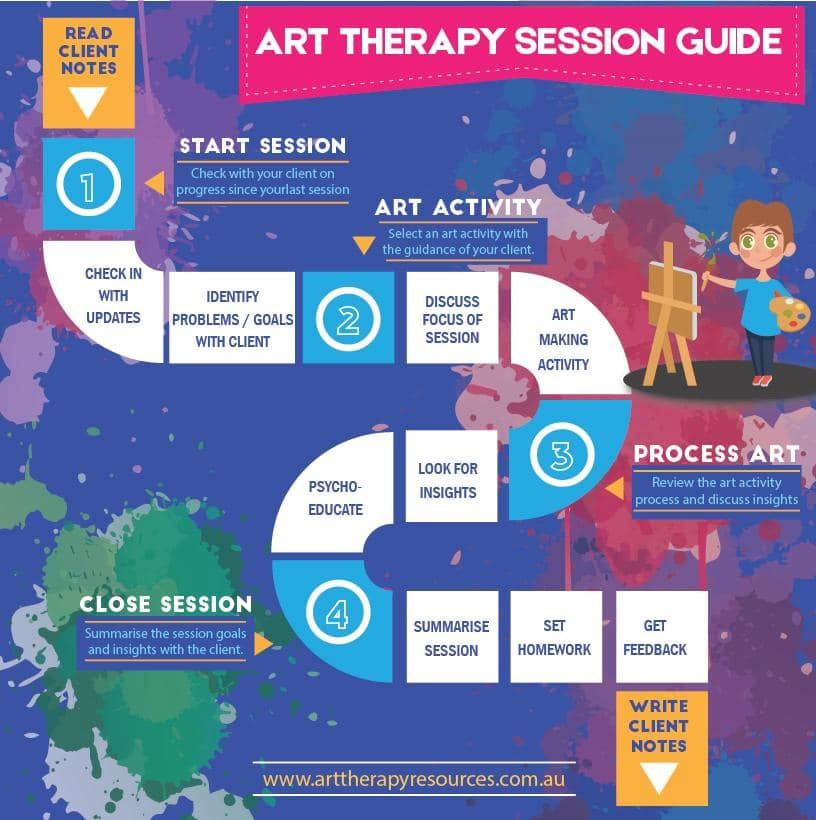 “It’s okay to decide that isn’t going to be helpful to you.”
“It’s okay to decide that isn’t going to be helpful to you.”
Luis M., 29, has been in this situation. “I'm Puerto Rican, I talk with my hands,” Luis tells SELF. Luis also happens to have ADHD and says that a former therapist routinely interpreted his hand gestures as “fidgeting” rather than an expression of his culture. “She did not understand that at all,” he says. “I was so frustrated with constantly having to be like, ‘Hey, this is the way I talk. It's cultural. Let's move on.’ ”
6. Your therapist isn’t receptive to constructive criticism.
You should feel comfortable bringing up constructive criticism with your therapist—for example, that it makes you feel unimportant or rushed when they consistently start appointments late.
“In good therapy, it’s ideal that [your therapist] doesn’t get mad at you and thanks you for speaking up for yourself,” Dr. Chansky says. If they get defensive or completely ignore your criticism or requests, that’s absolutely a valid reason to seek therapy elsewhere.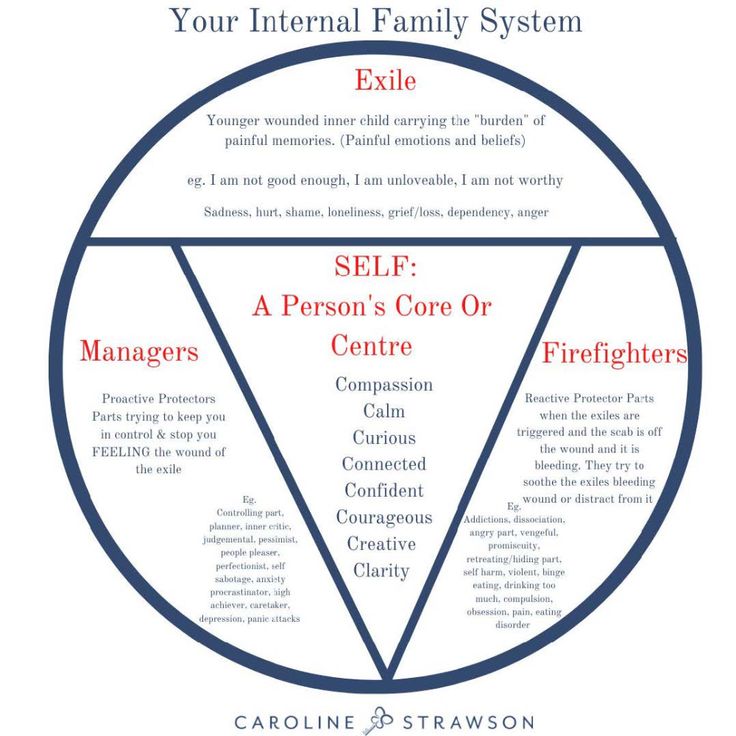
7. You feel as if you no longer need therapy.
“We’re not always ending therapy because it stopped working,” Dr. Amsellem says. “Maybe we’re ending it because it has worked.”
If you feel as if you’ve learned all that you can from your therapist, it might be time to discuss leaving therapy altogether.
Ready to break up with a therapist? Talk to them first.
Instead of just ghosting, try bringing up the issues you’re having to see if you can solve them without moving on to someone else.
Most Popular
Dr. Amsellem suggests starting with something like, “There’s something I wanted to talk about. My goals from therapy are [insert said goals here]. I’m concerned we’re not meeting them together. Is there any way we can get closer to helping me achieve these goals?”
As part of that conversation, it may help to set hyper-specific benchmarks of progress that you’d like to see in a certain amount of time to help you decide whether or not you should quit seeing your therapist for good. You may want to do this with your therapist or privately, depending on the situation.
You may want to do this with your therapist or privately, depending on the situation.
If your therapist doesn’t seem receptive to your points or you find that nothing changes even after bringing it up, it’s okay to try to find another therapist. Depending on the urgency of the issues you’re working on, you might want to lock in another therapist before quitting your current one, Dr. Chansky says.
“Sometimes it can be comforting to check out another therapist before moving on, to make sure you’re covered,” she says. “It really depends on how acute the issues are that you’re dealing with. If it’s an acute situation, like serious depression, it’s going to be really important.” (You shouldn’t abruptly stop seeing a psychiatrist who manages any mental health medications you take or decide to stop taking medication on your own. Both of those situations can compromise your safety and require input from an expert first.)
Even if you’ve decided you’ve made enough progress to quit therapy or that you need a therapist who is logistically easier to see, you should talk to your therapist to see what they think or if they have any advice. They may be able to refer you to someone who might be a better fit logistically or in terms of therapeutic approach.
They may be able to refer you to someone who might be a better fit logistically or in terms of therapeutic approach.
Break up with your therapist with an actual conversation if you’ve been seeing them regularly for over a month.
Honestly, this part is a lot like ending a relationship with someone you’re dating. The length of time you’ve been together determines a lot about how you should break up with them.
Dr. Amsellem says it’s best to do the breaking up in person during a session if you’ve been seeing your therapist for longer than a few weeks. Not only does it help give you both closure, but it’s a good challenge if you have trouble ending things or feel like you’re upsetting someone. “A lot of people are very conflict-avoidant, and this is a good skill to practice,” Dr. Amsellem says.
Ideally, you would have already told your therapist why you weren’t satisfied with your sessions, so the breakup shouldn’t come as a surprise. Here are a few suggestions for what to say, courtesy of the experts:
- “I want to end our work together because I have different goals right now.
 ”
” - “I really appreciate the work we’ve done together. I’m realizing I need something different now, but I appreciate your willingness to help me.”
- “I think I’ve made a lot of progress in our time together, and I feel that it’s time for me to move on.”
- “A few weeks ago, I mentioned [insert concerns here]. I don’t see enough of a change for it to make sense that we continue our sessions.”
Most Popular
Depending on the state of your mental health and the progress you have or haven’t made, your therapist may be fine with this or they may want to talk it through a bit to better understand your position and offer their professional feedback on your choice.
If you’ve only been seeing your therapist for a few weeks, Dr. Amsellem says you probably don’t need to have a session to officially end your time together. Instead, ending treatment via email or a phone call is typically fine. However, it can be especially helpful in this case to mention your concerns to your therapist instead of simply deciding not to see them. At only a few weeks in, you’re still getting to know each other. Your therapist may be able to more easily course correct or explain why you’re not yet seeing huge changes, for instance.
At only a few weeks in, you’re still getting to know each other. Your therapist may be able to more easily course correct or explain why you’re not yet seeing huge changes, for instance.
Even if you’re absolutely certain ghosting is the right choice for your situation, you should at least call the front desk and cancel any upcoming appointments so you don’t get charged a no-show fee.
At the end of the day, remember that therapy is for
you.If you feel like you’re not getting what you need out of therapy, that’s often reason enough to decide to try seeing someone else. Therapists are meant to have your best interests in mind. Even if a certain therapist isn’t a match for you, if they’re good at their job, they shouldn’t take the breakup personally.
See more from our Guide to Caring for Your Mental Health here.
Related:
- 12 Questions to Ask Your New Therapist Before You Decide If They're the One
- How Can You Tell If Therapy Is Actually Working?
- How to Know If Group Therapy Might Be Right for You
Kimberly Truong is a New York-based freelance writer covering health and wellness. Her coverage particularly focuses on mental health and all the ways it impacts our lives.
Her coverage particularly focuses on mental health and all the ways it impacts our lives.
SELF does not provide medical advice, diagnosis, or treatment. Any information published on this website or by this brand is not intended as a substitute for medical advice, and you should not take any action before consulting with a healthcare professional.
Topicsmental healthTherapy
More from SelfWhen is it time to end psychotherapy? 6 questions to the psychologist
We use cookies
to improve our experience!
Good
Interview
Author: Alexandra Kurchatova
April 1, 2021
5162 views
A person comes to psychotherapy, attends several sessions. And then he decides that he won’t do it anymore, because it’s long and difficult to work on yourself. And the other one has been walking for three years, never misses a single meeting and, it seems, cannot live without therapy. How to understand that it is time to end psychotherapy? Why can't you throw it hard? How to end therapy painlessly? With this and other questions, we came to the clinical psychologist Ekaterina Shchuka, and this is what we found out. nine0004
nine0004
Clinical psychologist, sexologist, body-oriented psychotherapist Ekaterina Shchuka
In this article we will talk about cognitive behavioral therapy. But psychologists and psychotherapists work in other areas, so approaches may differ.
No, it is not possible to predict the number of sessions. The time frame depends not only on the therapist, but also on the client and his request. There is a point request, for example, a problem with falling asleep, then several meetings are enough. Someone comes to deal with deep problems from childhood, then it may take a year or more to achieve results. nine0004
Usually, significant results are noticeable 2-3 months after the start of work, and after six months they are already stable.
In the course of therapy, after achieving good results, you can increase the time between sessions. At the very beginning, it is recommended to meet with a psychotherapist once a week, then once every two weeks, and then once a month.
People in life often don't see things through to the end. The psychotherapist's office can become the place where a person learns to put an end to it and say through the mouth what worked and what didn't. nine0004
If you want to quit, you must first find the reason: the therapist is not suitable, the method is not suitable, or you are afraid to run into yourself in the course of work. If it's about fears and worries, then maybe just at this moment you shouldn't quit. It is important for a psychotherapist to know about your intentions so that he can give feedback, suggest what else to work with, or recommend a specialist with a different approach.
Even with an abrupt cessation of therapy, there is a danger of kickbacks - when a person returns to the state with which he came. For example, a client applied with constant anxiety. During the work, the symptoms were removed, but the cause of the alarm was not found. The client considered that the problem was solved and left the therapy. But after a while the anxiety returned. To completely get rid of it, you need to understand the cause, and this requires time and deep work. In therapy, first get rid of the symptoms, and then deal with cause and effect relationships. nine0004
The client considered that the problem was solved and left the therapy. But after a while the anxiety returned. To completely get rid of it, you need to understand the cause, and this requires time and deep work. In therapy, first get rid of the symptoms, and then deal with cause and effect relationships. nine0004
It would be right to warn the psychotherapist in advance about his desire to interrupt the classes and come to the last session, where, together with the specialist, he will sum up his work. Even if there were only 4-5 meetings. Thanks to the final session, a person will not remain in limbo. Competently closing therapy is an adult, conscious and responsible act.
It can be said that the ideal completion would be if a person came with a problem and left without it. For example, he dealt with panic attacks and during psychotherapy he got rid of them. This is already a result. nine0004
Theoretically, this can happen, but a good specialist will not allow this.
It happens that a person comes with one problem and during therapy a new request appears. Let's say they worked out fears in relations with their parents, and now he wants to decide to find a new job. Of course, a psychotherapist will help you deal with a new request - this is normal. But this does not mean that therapy will continue forever. Sooner or later, a person must go into an independent life.
An adequate psychotherapist will not drag out sessions for many years and will not turn a client into a therapy addict. That is why the time between sessions gradually increases - once a week, once every two weeks, once a month. nine0004
The main skill that is developed in therapy is reflection, that is, the ability to find cause and effect relationships. The client learns this, becomes independent, he has an internal support, self-confidence. When he feels confident and free, he does not need a psychotherapist. And a person will be able to cope with new problems on his own.
And a person will be able to cope with new problems on his own.
If a person cannot cope with either emotions or life difficulties without a psychotherapist, he is stuck.
Other signs can be identified - there are no more new results and the condition is getting worse. Then it is worth ending or changing the psychotherapist, because the therapist can be outgrown - that is, you can get everything that he could give from him. If the specialist himself does not grow, does not develop, does not explore new things, but the client does, then at some point the latter will have nothing to take from him. That is why good psychotherapists are constantly learning and attending supervision themselves. nine0004
But even in such cases, you need to talk to a psychotherapist and have a final session. Because a person may think that there are no results in therapy, but they actually are. And in order to see them, there are techniques. For example, keep a diary from the beginning of therapy, at the end you can re-read it and understand what a long way the person has come.
For example, keep a diary from the beginning of therapy, at the end you can re-read it and understand what a long way the person has come.
How do you rate the article?
Clear
Unclear
Themes
Mental
Editor's Choice
Speakers
→
Are doctors and patients partners?
129 Views
Mental
January 12 2023
answered in science
→
The difference between auto -aggression and dermathylomania
152 views
mental
29 2022
Narosis
9000 9000 9000 & neuroticism: what is the difference
163 views
Mental
December 28, 2022
Answered in science
→
Is it so bad to be distracted: to think and hang out? | PSYCHOLOGIES
10 362
Know YourselfAntistress
“Is it time to stop or still continue? I can't make a decision,” says 38-year-old Natalia. - And still once a week I come for a consultation with a psychotherapist. At the same time, I still have the feeling that the main part of the work has already been done and I no longer need help. But I do not dare to stop our meetings…”
- And still once a week I come for a consultation with a psychotherapist. At the same time, I still have the feeling that the main part of the work has already been done and I no longer need help. But I do not dare to stop our meetings…”
How do you know when it's time to end your psychotherapy? This is a simple question for which there is no simple answer. Psychoanalysts and psychotherapists in various fields are sure that the patient's doubts are a sure sign that the time has not yet come to stop the sessions.
And they all say that ending therapy is a complex process
First of all, because it is about the end of a relationship between two people. “But often the sessions are interrupted when the patient simply stops coming, despite the fact that the psychologist believes that it is necessary to continue the work,” psychotherapist Tatyana Bednik states with regret. nine0004
We asked psychotherapists from different schools and directions to talk about how to end psychotherapy in a constructive and painless way.
Temporary or permanent cooperation?
In most psychotherapy schools, the end of therapy is agreed upon at the first meeting. This applies to short-term and long-term therapies (behavioral, cognitive, gestalt therapy, transactional analysis…).
In this case, psychotherapist and patient enter into a temporary union, explains psychotherapist Christophe André: “They set a specific goal for this joint work (fear, phobia, communication difficulties, procrastination…) and agree on a duration: 5 meetings, 6 months, a year, two years ... ". nine0004
As a rule, when the goal is reached, the therapy ends. 28-year-old Anna overcame her shyness in 12 sessions: “I still have a bunch of other problems, but at that moment I just needed to get rid of this particular one.”
For psychoanalysis, on the other hand, it is much more difficult to determine the end time of work.
“I went to a psychoanalyst with a general indefinite malaise and with the sole purpose of improving my well-being,” says 48-year-old Natalia. “I knew it would take a long time, and I didn't care how long. The further I go, the more I feel the need to continue. But until when? nine0004
“I knew it would take a long time, and I didn't care how long. The further I go, the more I feel the need to continue. But until when? nine0004
Since "absolute mental health" is an illusion, even Sigmund Freud, the founder of psychoanalysis, wondered whether "there is a natural completion of psychoanalysis, whether it is possible in principle to bring such an analysis to an end" 1 . Nevertheless, he admitted that the course of treatment could be ended under two conditions:
- the symptoms, fears, or obstacles that caused the patient to come in no longer cause him suffering;
- work with the unconscious allows you not to be afraid of the return of the problem. nine0145
Thus, "neither I nor any of my colleagues will ever tell you: 'Psychoanalysis is over'," explains psychoanalyst Jean-Pierre Winter. We just can't know. And we cannot be sure that the patient will not take these words as a rejection of him. Everyone must decide for himself when to stop visiting a psychoanalyst.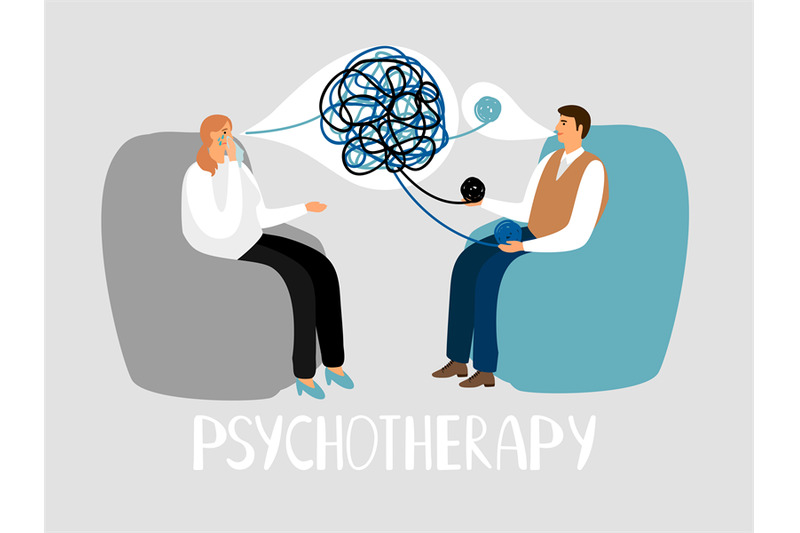 But don't do it prematurely either...
But don't do it prematurely either...
An overwhelming desire to escape
"It's hard to resist the temptation to jump off a moving train," says 42-year-old Victor about his experience. Twice in the past year he has started psychotherapy. In any therapy, there is a moment when it seems that you are running in circles, notes Vitalina Chibis, a psychoanalytically oriented psychotherapist. nine0004
“It is not clear what else can be done and where it will lead. Certain changes are already being felt, but they are superficial and largely aimed at pleasing the psychotherapist, ”she clarifies. It is at such moments that there may be a reluctance to deepen the work.
“I met with a psychotherapist twice and thought I had dealt with my problems. In fact, I was treading water. In the following months, I again slipped into a style of communication that was familiar to me and unbearable for loved ones. I returned to therapy only when I finally decided to talk about the main problem, which I simply tried not to think about and which controlled me, my behavior, my life.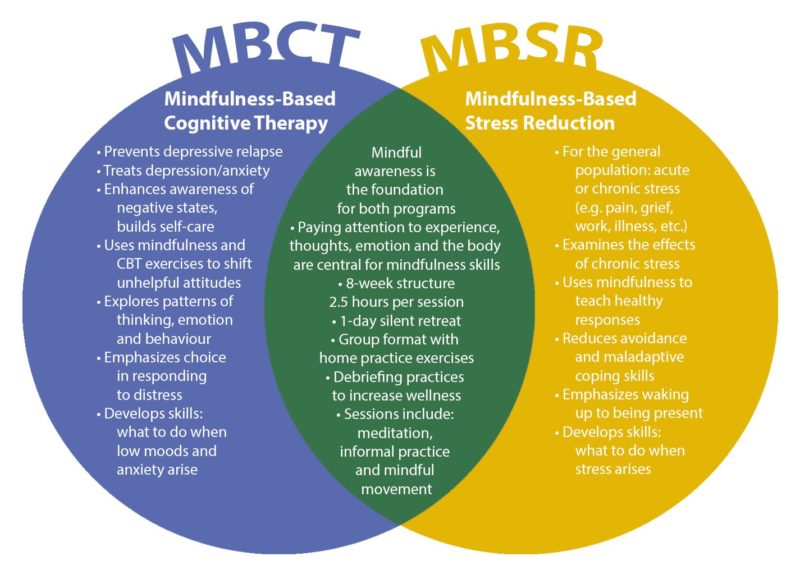 nine0004
nine0004
“Such a premature termination of meetings with a psychotherapist often means that “somewhere in the process of transference there was a problem,” says Jean-Pierre Winter. Transference was discovered by Sigmund Freud.
The patient in a relationship with the therapist recreates the desires and feelings that he had for his parents
He relives anxieties, resentments, internal conflicts, unfulfilled expectations, strong emotions in the safe conditions of psychoanalysis. “Due to the fact that the analyst does not evaluate or condemn, but listens carefully and accepts his feelings, the patient understands himself better.” nine0004
The relationship between patient and analyst is limited by strict limits, and this makes it possible not to confuse the therapeutic relationship with the real one. And yet every patient inevitably re-experiences the excitement associated not with the therapist, but with the person he represents. “I left my analyst in anger because I got the impression that he did not respect me,” Mark, 38, regrets.
“I left my analyst in anger because I got the impression that he did not respect me,” Mark, 38, regrets.
Tatyana Bednik explains: “Abrupt cessation of therapy can be one of the ways to recreate the scenario of the past, in which, for example, what was started never ended. In such a case, the task of the psychotherapist and analyst is to help the patient understand the reasons for his desire to quit therapy and thus avoid self-deception. nine0004
A feeling of freedom
“One day I clearly understood that everything was really over,” recalls 33-year-old Christina. “The reason why I came to therapy almost a year and a half ago has ceased to torment me. For the first time in years, I was able to calmly communicate with my mother and clearly say “no” to her when, out of habit, she continued to interfere in my life. I don’t quite understand the mechanism of what happened to me, but it happened.”
How to distinguish a cure from a false result? According to Vitalina Chibis, in general, “you begin to feel better, you understand that you can live without your psychotherapist. ” Painful symptoms subside. nine0004
” Painful symptoms subside. nine0004
“It is very important,” says Christophe André, “to gain some degree of freedom in relation to these symptoms. For example, you can still be afraid of something, but stop being a slave to this fear.” Visible improvement is the result of working on the invisible: beliefs, resentments, images that create problems in behavior or relationships.
Psychoanalysis considers another phenomenon as a signal for the end of the course of therapy: "cessation of transference"
"Jacques Lacan said that there are three stages of psychoanalysis," recalls Jean-Pierre Winter. - At the first stage, when I speak, it is not really me, and I am not addressing the person to whom my words are addressed. At the second stage, I already speak, but still I do not address my interlocutor. At the end of the course, I really communicate with my interlocutor, the psychotherapist.” nine0004
The founder of transactional analysis, Eric Berne, formulated the same thing differently. “He believed that the course ended when the patient was able to perceive his psychotherapist as an adult, and not as a guardian or controlling Parent in the context of the three states of the Self,” explains transactional analyst Vadim Petrovsky.
“He believed that the course ended when the patient was able to perceive his psychotherapist as an adult, and not as a guardian or controlling Parent in the context of the three states of the Self,” explains transactional analyst Vadim Petrovsky.
From the point of view of transactional analysis, there are three states of our "I": Parent, Child and Adult. These states affect our needs and our behavior. In fact, therapy is completed when the patient, through the personality of the psychoanalyst, manages to settle all scores with those whom he represents and reconcile reality with images. nine0004
Last session…
Behavioral and Cognitive Therapy, Gestalt Therapy, Transactional Analysis and some other types of psychotherapeutic help include one or two final meetings at the end of the course. “The day before, I reread all the notes made during our meetings. The patient also sums up his results, and I tell him about the progress he has made,” explains Tatyana Bednik.
“There is a certain solemnity to the last session,” notes Christophe André. “I have to make sure that the patient has taken well to everything we have been working on. Finally, I give him some supportive advice for the future.” Sometimes the patient and the therapist agree to meet after 6 months to take stock. nine0004
“I have to make sure that the patient has taken well to everything we have been working on. Finally, I give him some supportive advice for the future.” Sometimes the patient and the therapist agree to meet after 6 months to take stock. nine0004
Nothing like this happens in psychoanalysis. Jean-Pierre Winter says: “Sometimes, at the beginning of the session, the patient declares that he will not come again. Or he mentions the desire to finish the analysis and at the same time reveals a whole palette of internal reasoning that can contribute to his healing.
Kristina recalls her last session with humor: “It was a bit strange. We had nothing more to say to each other ... simply because there was basically nothing more to say! We shook hands warmly. And that was the end of the job." nine0004
The last session has a sad undertone. The story of a relationship between two people ends
“I am also sad, but a sense of pride prevails, akin to what a mother experiences when sending her child into adulthood,” notes Christophe André.
And then what? “And then I cried for three hours,” Christina admits. - I restrained myself not to rush to the phone and make an appointment for another appointment. And only the next day I felt that I had turned this page of my life. nine0004
Jean-Pierre Winter confirms: “Immediately after the sessions are over, something is bound to happen. The psychoanalyst is not told this, but indirectly he finds out. And for him, this is also an important experience!
Some patients sleep for days on end, some have severe joint pain. Some people have incredible dreams, and they don't know how they can not tell their psychoanalyst about it. And then it turns out that it is possible. It became possible.
"My psychologist does not want me to stop therapy"
“I wanted to end our meetings, I told the therapist about it during our session on Thursday, he did not agree with this decision,” says 29-year-old Svetlana. “Nevertheless, I stopped visiting him…” Does a psychotherapist have the right to object to the departure of his patient?
“Regardless of whether the therapy is completed or not, you have the right to stop it at any time, and no one can interfere with this,” reminds psychotherapist Christophe André. But the psychologist also has the right to disagree with your intention and tell you about it. nine0004
But the psychologist also has the right to disagree with your intention and tell you about it. nine0004
“Rejection is difficult to interpret in isolation from the situation and from the form in which it was formulated,” says psychoanalyst Jean-Pierre Winter. Often in the process of psychoanalysis, the intention to leave speaks only of the patient's desire to make sure that the psychoanalyst is interested in continuing the work, that the patient is interesting to him.
In other words, he threatens to leave in the hope of being held back. The therapist's role then is to "reveal the metaphorical level of the patient's demand to end the sessions: is he trying to break up with his therapist instead of, for example, breaking up with his mother?" Jean-Pierre Winter continues. nine0004
In any case, not wanting to wait for the green light or your therapist's consent to end the sessions can work - but not always! - a good indicator.
1 Z. Freud "Finite and Infinite Analysis" (MG Management, 1998).



